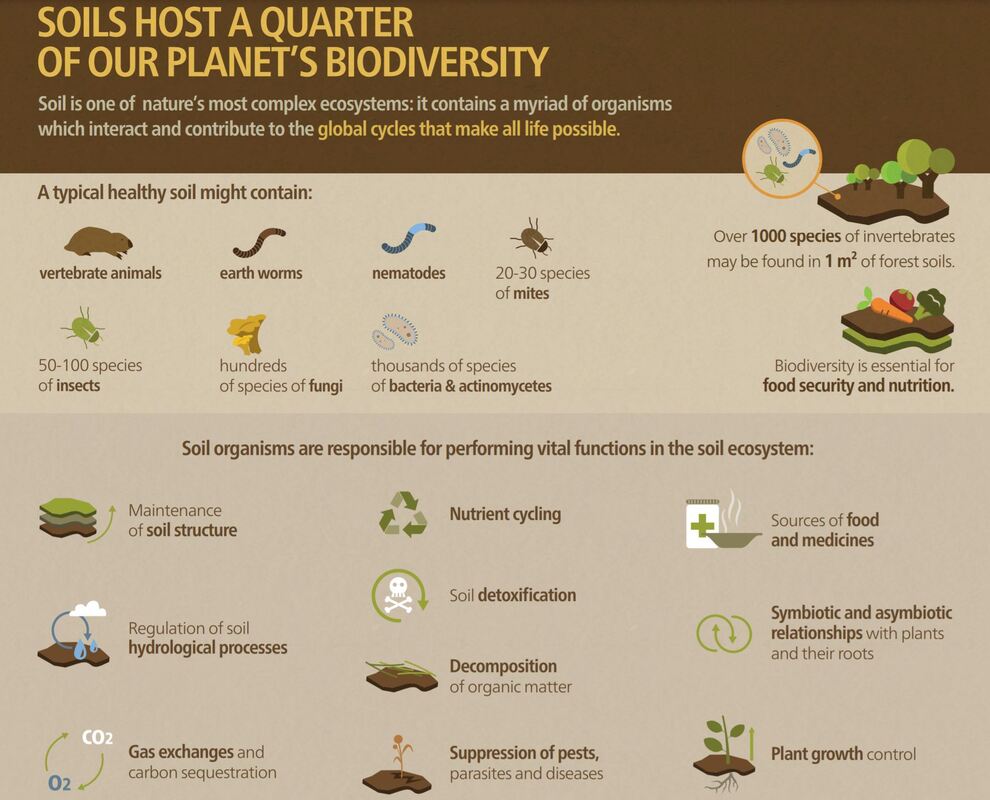Enjoy this sneak peek into the Soil Is Alive! Mobile Classroom. Big things are happening, stay tuned for updates and a schedule of events coming this fall 2022.
Infographic from FAO, 2015. Soils host a quarter of our planet's biodiversity. Soil is one of nature's most complex ecosystems: it contains a myriad of organisms which interact and contribute to the global cycles that make all life possible.
Interested in scouting for beneficial insects in you soil: Check out this scouting tool provided by Xerces Society.
Interested in scouting for beneficial insects in you soil: Check out this scouting tool provided by Xerces Society.


